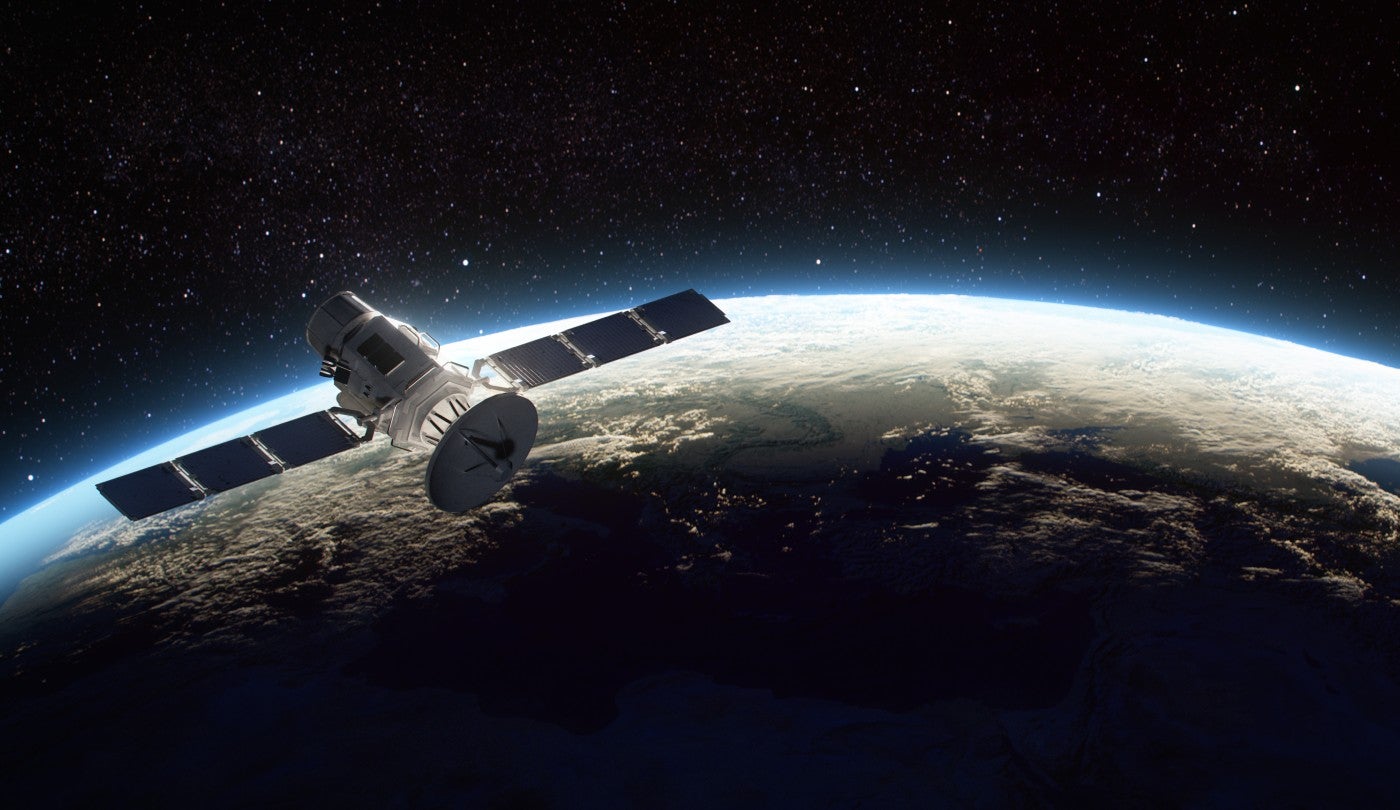
US President Joe Biden last week stated that Russia had the capacity to launch a nuclear weapons system into space but that it would not pose a nuclear threat to Earth and may never go ahead.
Russian President Vladimir Putin denied the allegations, stating: “We have always been categorically against and are now against the deployment of nuclear weapons in space … We are doing in space only what other countries have, including the United States.”
It appears there is no imminent threat or plans for the project, however, due to the intrinsically linked nature of space systems, military and geopolitics dating back to the Cold War, this still could be significant in the future.
GlobalData analysts James Marques and David Bicknell unpacked Russia’s position in the space economy and the potentiality of a new space race.
What is the connection between space systems and military strategy?
Marques: For modernised militaries, space-based assets are essential. They enable accurate navigation, communication and reconnaissance/surveillance of the Earth. functional and well-performing space systems will give militaries the ‘decision advantage’ – the ability to act upon reliable and timely information gathered from satellites, whether it be enemy troop movements and communications, or weather conditions for air and sea operations, and even detect missile launches on Earth below in the case of some US space systems. All this data they are gathering underpins most of the Western world’s military operations today.
Why would an orbiting nuclear weapon deployed by Russia be significant in the realms of defence?
Marques: I think the details on the exact nature of the weapon yet aren’t final, but if Russia could place some sort of device – probably nuclear in nature – that can emit an electromagnetic pulse, it could ‘fry’ or disable a vast number of the satellites in orbit, potentially most or all of them. the radiation it could emit may also make future space travel even more hazardous.
How well do you really know your competitors?
Access the most comprehensive Company Profiles on the market, powered by GlobalData. Save hours of research. Gain competitive edge.

Thank you!
Your download email will arrive shortly
Not ready to buy yet? Download a free sample
We are confident about the unique quality of our Company Profiles. However, we want you to make the most beneficial decision for your business, so we offer a free sample that you can download by submitting the below form
By GlobalDataI think, fundamentally, they are after an anti-satellite weapon rather than something to hit Earth from above with. Damaging and disabling satellites is a shot straight at the vital parts of any country using them, for both the military and the civilian economy, which utilises satellites every day. Just one example would be to imagine what would happen if Russia could destroy the GPS satellites, which all of NATO and of course millions of civilians every day uses.
If Russia does achieve this, how will it put them at an advantage?
Marques: In theory, placing such a weapon in orbit would likely be a form of deterrence/blackmail in the same way a nuclear weapon is supposed to be. The threat of catastrophic consequences if someone ‘threatens’ or antagonises Russia. They may use this to extort further territorial gains, pressure weaker countries to go along with their plans and contribute to their economy etc. But given that the main users of satellites today in both military and civil contexts is the west and largely the US, it’s probably most of all pointedly aimed at threatening the US’s technological advantages in orbit
What further developments may occur in this area over the next five years? Would the US follow suit?
Marques: If Russia does successfully place almost any type of anti-satellite weapon in space, I’d more or less guarantee you the US would follow suit, and perhaps at a faster pace than many imagine. I wouldn’t want to speculate too much, but much of the US’ highest levels of military technology remain classified or deliberately vague so as to give their rivals a sense of unease. It is known that the US Air and Space Forces constantly run practical experiments with a number of technologies, including quite mysterious spaceplanes and satellites.
It should be noted that there has quietly been suspicious activity from Russia in space for some years now, including the ‘following’ of American satellites by Russian ones which have been observed ‘launching’ smaller objects contained inside them into space.
Why would Russia bidding for an orbiting nuclear weapon be significant?
Marques: A handful of the world’s most powerful countries already have Earth-based anti-satellite weapons, but to place these weapons in orbit itself would mark a new chapter that I’m certain would only rapidly escalate, if not spiral. I think it shows that Russia now sees itself in a very long-term confrontation with the West of which the war in Ukraine would probably be only the first chapter. Broaching political analysis here a bit but I think it’s fair to say Russia has a proven track record of gradually escalating and making strategic ‘plays’ such as this whenever they sense that the West’s reaction to what they did last time was not strong or threatening enough.
As I’ve said, I don’t think it’s a coincidence that this all comes around the same time as the battlefield situation in Ukraine getting tough, Navalny’s ”Death”, Putin’s ”Election”, etc. It likely means continued Western rearmament and renewed efforts in space.
Something else to keep in mind is it’s hard to say which particular project is going to be a win/loss for Russia but its space assets and program in general have suffered quite a lot in the last couple of decades. It was the one sector that was genuinely badly affected by sanctions in 2014 after Crimea.
What is Russia’s position within the geopolitical space economy compared to the US and China and does this news signal a new space race?
Bicknell: As we explored in The Space Economy report, although in 1983, US President Ronald Reagan declared the beginning of the so-called ‘Star Wars’ Strategic Defense Initiative and promised to put lasers in space, 40 years later, space weapons, including space-based ballistic missiles, ground-attack weapons and directed energy weapons (DEW), remain a distant dream.
Space is used to host communications, surveillance, and navigation satellites to support military operations, but it is not yet weaponized. It must stay that way. An idea that Russia is considering such a nuclear move is likely to spur US and Chinese considerations as to whether they should match Russia’s ambition, creating a new space race. But Russia’s space stock isn’t high.
The deterioration of its space sector can be traced back to the 1990s, as funding cuts led to the degradation of national satellite constellations and ground infrastructure. This decline has been accelerated by its invasion of Ukraine. In August 2023, Russia’s Luna-25 mission to the Moon, where it attempted to land on the south pole, failed when it spun out of control and crashed into the lunar surface. The failure underscored the post-Soviet decline of a once mighty space program. A nuclear weapon orbiting in space would seem to be beyond Russia’s capabilities.







